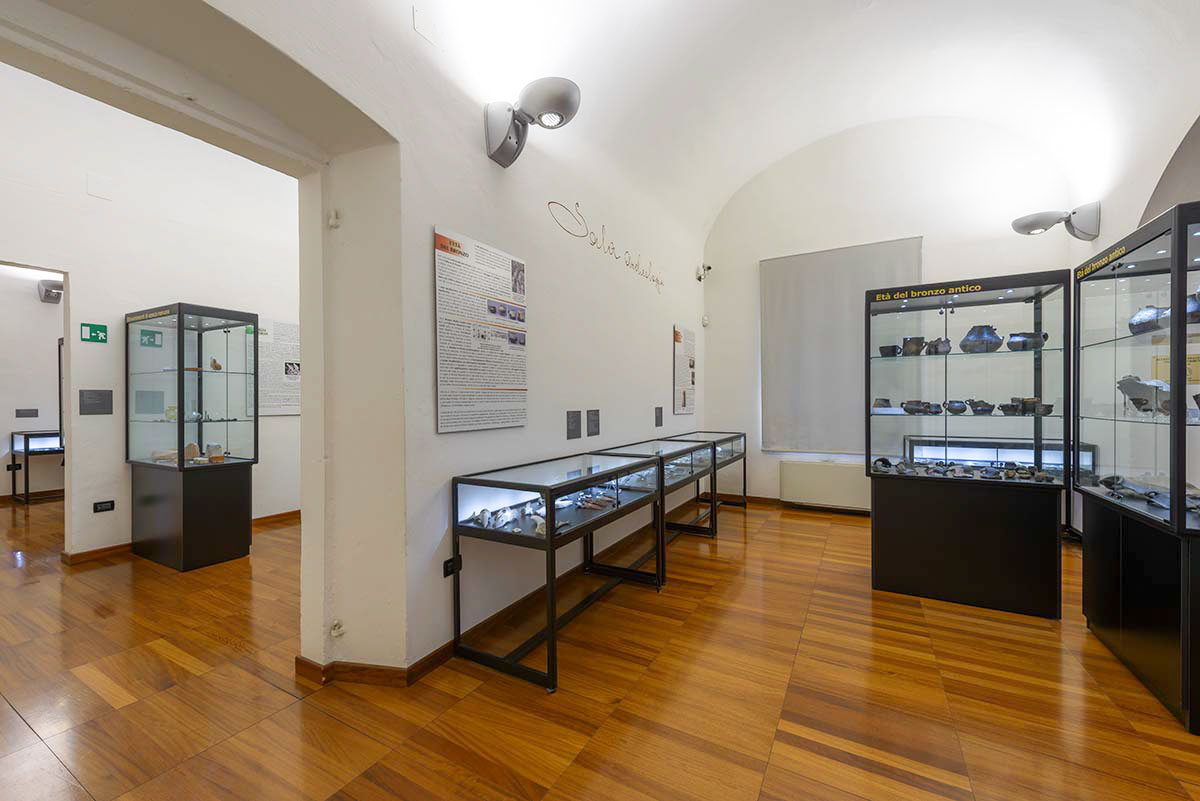
The items on display at the museum in Asola come from the private collection of the knighted Goffredo Bellini, who made it available to the general public during the twenties. On Bellini's death, the collection was given to the municipality, which saw to preserving it within the civic museum. Bellini’s interest as a collector turned immediately and enthusiastically to the archaeological materials through purchases in antiques markets, in particular of a black-figured Attic kylix drinking cup and an Egyptian funerary stone, and through the hunting of original artefacts, which, between the late 1800s and early 1900s, had begun to be unearthed in abundant quantities in the area to the east of Adda River and to the south of the alpine lakes. Over the years the Bellini collection was joined by other materials from excavations and surveys in the area, deposited at the museum by the Archaeological Superintendence of Lombardy. Significant, though small in number, are the Neolithic finds of the Square Mouthed Vase culture and Copper Age materials, including ceramic bell-shaped and Chassey-Lagozza type fragments, as well as some Neolithic axes in green stone from the local area. Most noteworthy and abundant are items of the Polada culture, including Early Bronze Age ceramic cooking pots and jars, and of the pile-dwelling Terramare culture, including Middle and Late Bronze Age ceramic pottery, bronzes and worked bone. Rather disconnected and uncontextualised are the finds from the Iron Age, even though there are pieces that can be held in comparison in important contexts such as the Fontanella Mantovana area for the early Iron Age and the Etruria Padana area for the Archaic period. There are some very interesting pieces from Celtic contexts, including weapons, jewellery and ceramics, that may be compared with finds from the important necropolises of Carzaghetto and Remedello. Regarding more recent times, there are some Roman materials of varying types, unfortunately with little dating information available, counting fine ceramic tableware, common ceramic table and kitchenware, amphorae, oil lamps, glasses, metals, a small coin collection and some epigraphs, including a noteworthy late ancient inscription describing a thermal system. Additionally there are some excavation materials, of particular interest from funerary complexes found near Asola, which document an advanced stage of Romanization of the Celtic populations settled in the Po Valley Plain around Asola, Fondo Pasquali, Sorbara and Palazzina Fiorita.
Open:
From Monday to Friday: 9 am to 1 pm
Saturday: 9 am to 12 pm
Sunday: 3:30 pm to 6:30 pm
Closed all Sundays in August




